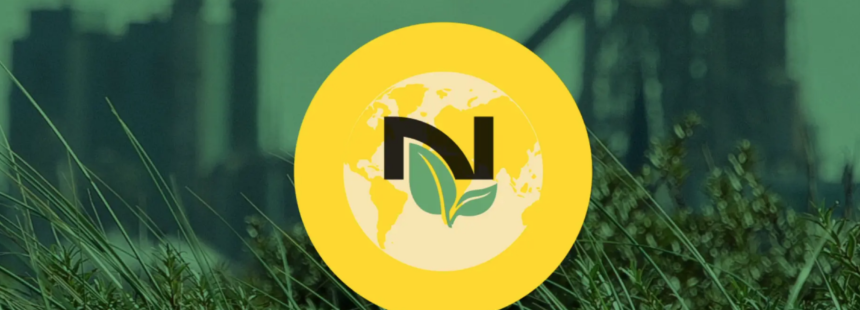

This post is part of my ongoing collaboration with Noodle.ai. You can see the rest of our projects here.
Webcast: Augmented Intelligence for Profits + the Planet from Noodle.ai on Vimeo.
Check out the original blog post at Noodle.ai
By Gail Moody-Byrd
We need to act now to eliminate waste in manufacturing, and human combined with machine intelligence is the most direct path to this bold but achievable goal.
That was the summation of an Earth Day webcast I moderated, “Augmented Intelligence for Profits + The Planet.” Steve Ellis, managing partner, TPG, and co-managing partner of the Rise Fund, and famed grand chess master Garry Kasparov, joined Steve Pratt, our CEO, and myself.
There was no sugar coating of the challenges. Given global warming, damage to oceans, rising consumption with rapid global population growth, Ellis says the science gives us 10 years to make big changes or potentially reach a “tipping point.” The TV series, “Friends,” lasted 10 years. That’s a short time frame.
Kasparov, who coined the term “augmented intelligence,” meaning the combination of human creativity and machine brute force, addressed reluctance to speed up AI because of fears of lost industries, lost jobs, and the risks of unethical AI. But rather than give in to doomsday fears and slow AI with new regulations, Kasparov urged innovation. The pandemic underscored how vital technology is to humanity (developing a vaccine in 10 months) and that no progress comes without risk, he says.
“The problems we face are massive,” Kasparov says. “The amount of data is too mind boggling. Without proper coordination between humans and intelligent machines, nothing will happen.”
Most Powerful Tool
I couldn’t agree more. AI, and more specifically, “augmented intelligence,” is the most powerful tool we have to deal with waste, which is wrecking our planet. As noted in Steve Pratt’s recent article on the World Economic Forum, industrial waste makes up at least 50% of waste generated globally. Manufacturing is one stream of industrial waste, and it is the biggest and fastest-growing.
That adds up to big opportunities. Attacking waste in manufacturing will result, immediately, in bigger wins than any other effort, including those by consumers. At least $2 trillion a year is wasted in manufacturing across the globe because of defective products, excess inventory and unplanned downtime. This waste is driven by such things as poor or slow processes, bad decisions based on bad data, and lack of insight into markets, demand, distribution channels and what’s really going wrong on the factory floor.
All of these issues, our panelists noted, can be avoided with technologies that manufacturers didn’t have access to even 10 years ago. Today, we can get the right stuff to the right place at the right time. Manufacturers – leaders and the people that make the business “go” (the operators and planners) – can eliminate operational entropy and achieve perfect flow with software built upon advanced technology. It’s happening today at leading global companies in metals, chemicals, and CPG (for example), with tremendous financial impact.
To get there, manufactures need three things, Ellis said. First, they need the ability to measure waste. Then, they need to understand what’s causing it in their business systems. Finally, they need to know how, and for how long, it will exist in internal and external ecosystems. To know all of that requires a “massive amount of data,” requiring us to leverage the power of augmented intelligence.
Companies that don’t do so will “hit a commercial wall,” Ellis says. The choice is no longer planet vs. profits. Instead, the values of shareholders, customers, consumers and employees are aligned to do good for the planet while doing good for the bottomline.
Untapped Genius
Kasparov, who never fails to enlighten, cited McKinsey research stating that just 4 percent of work activities across the U.S. economy require creativity at a median human level of performance. That means that 96% of jobs are “zombie jobs,” Kasparov said, dead but not knowing it.
If AI is slowed by fears, “AI will not be able to help us create new jobs,” Kasparov said.
Steve Pratt sees another scenario: most of the world’s brainpower has yet to be tapped. That’s a resource like no other. While the technologies of yesterday turned humans into clerks, the technologies of today and tomorrow, along with human creativity, create a beautiful tango of efficiency and productivity.
Hitting Flow
With new tools architected from the ground up, and mindsets that embrace new ways of doing business, companies are achieving flow, which Noodle describes as the seamless flow of goods from raw material to consumer and back — without waste. At Noodle.ai we see customers such as Kellogg and Estee Lauder making great gains.
And, we see room for every company to do the same, to make the choice to invest and to change for the benefit of everyone.
As we concluded during the panel: waste is now a choice. So is the action of eliminating it.
Curious about how to achieve perfect flow and eliminate waste in manufacturing? See Noodle’s incredible breakthrough Flow Operations Enterprise AI® technology in action: Request a demo.

